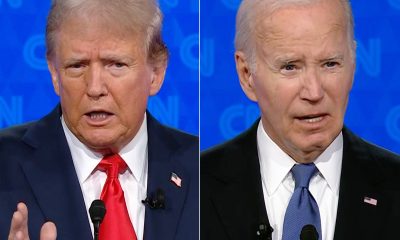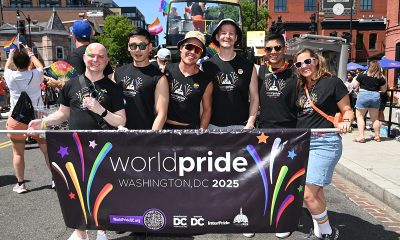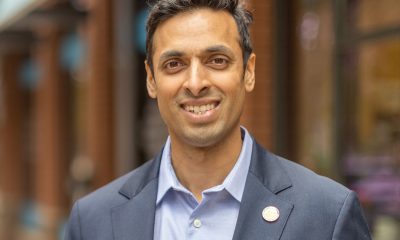News
Anti-gay views rampant in Dominican Republic
‘Ex-gay’ therapy remains popular
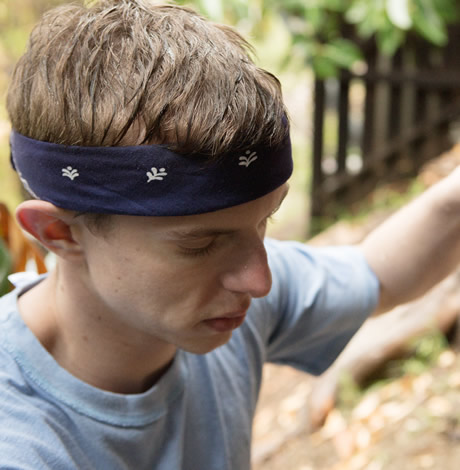
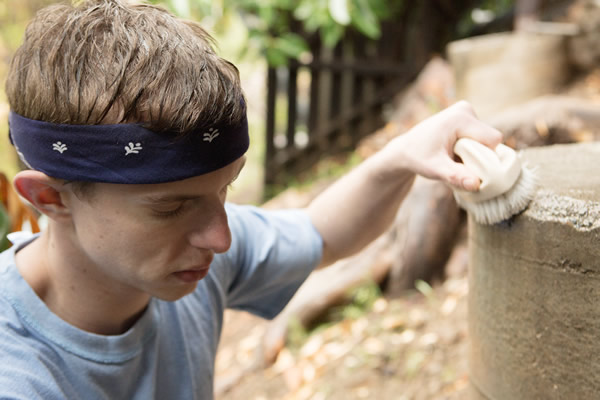
David, a victim of the abusive practices employed at Escuela Caribe as depicted in the documentary ‘Kidnapped for Christ.’ (Photo by Katrina Marcinowski)
Anti-LGBT religious leaders remain influential in the Dominican Republic in spite of local advocacy efforts that have grown more visible in recent years.
Cardinal Nicolás de Jesús López Rodríguez of the Archdiocese of Santo Domingo last month told a Dominican newspaper that gay U.S. Ambassador to the U.S. James “Wally” Brewster “should take his pride elsewhere,” after he and his husband, Bob Satawake, released a video to celebrate Pride month. He described the gay U.S. ambassador as a “maricón” or “faggot” in Spanish during a June 2013 press conference after President Obama nominated him with the apparent approval of Dominican President Danilo Medina.
Rev. Luís Rosario of the Santo Domingo Youth Ministry has described Brewster as a “bad example” for Dominican society and families. Rev. Cristóbal Cardozo of the Dominican Evangelical Fraternity and other religious leaders also opposed the former Human Rights Campaign board member’s nomination.
“We are defending a person who is homosexual, that is gay and has come to occupy his country’s public position in the Dominican Republic,” Deivis Ventura of the Amigos Siempre Amigos Network of Volunteers told the Washington Blade during a March interview at his Santo Domingo home that more than a dozen other Dominican LGBT rights advocates also attended. “We are defending the right that we have to occupy public positions equally as gay, lesbian, bisexual and trans people.”
Ventura and other Dominican LGBT rights advocates with whom the Blade has spoken in recent months have pointed out that Brewster has made their efforts more visible through increased media coverage and debate of gay-specific issues in the country. Anti-LGBT discrimination, a lack of support from the government and persistent health and educational disparities are among the myriad issues they continue to confront.
López in 2010 described Parque Duarte in Santo Domingo’s Colonial City where hundreds of LGBT Dominicans gather on weekend nights as “a space where all types of insolences and vulgarities abound.” He and some neighbors have unsuccessfully tried to ban them from the square that is across the street from a church.
Ventura told the Blade last week that Dominican psychiatrists practicing so-called “reparative therapy” is becoming more common.
José Dunker Lambert, a psychiatrist and family therapist, on June 18 published on his website a list of 10 reasons “to treat homosexuality.” These include the arguments that homosexuality is a “social deviation” and “learned conduct.”
Dunker, Dominican Sexology Society President Martha Arredondo Soriano and Amigos Siempre Amigos Executive Director Leonardo Sánchez in April debated in a Dominican newspaper the topic of whether homosexuality is a choice.
“A person who has a homosexual orientation, who feels attracted to people of the same sex, in any given moment can decide to not exercise their true orientation,” Arredondo says. “But the science is clear and comes with evidence: Sexual orientations cannot be changed.”
“Kidnapped for Christ,” a documentary co-produced by Lance Bass that debuted at this year’s Sundance Film Festival features Escuela Caribe, a Christian boarding school near the city of Jarabacoa in the country’s mountainous interior. The institution that an Indiana-based Evangelical organization opened in 1972 subjected students to physical abuse and other forms of punishment that included forced labor and “conversion therapy.”
Ventura noted to the Blade that fundamentalist Christian churches in the U.S. fund Escuela Caribe — which closed in 2012 and reopened under a new name — and similar institutions in the Dominican Republic.
Politics
HRC slams White House over position opposing gender affirming surgeries for minors
‘Biden administration is flat wrong on this’
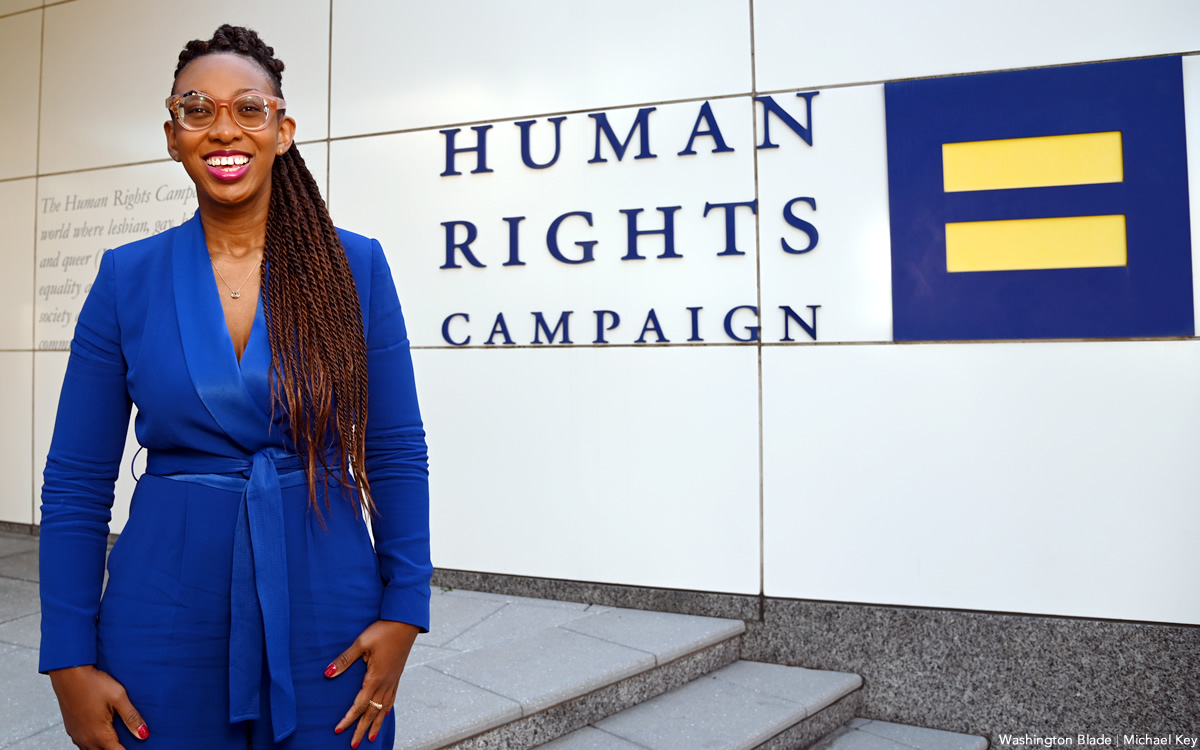
Human Rights Campaign President Kelley Robinson issued a strong rebuke on Tuesday of the Biden-Harris administration’s position opposing gender affirming surgeries for minors.
The New York Times reported on June 28 that the White House, which broadly supports making medical interventions available for transgender youth, had expressed opposition to surgeries for patients under 18, having previously declined to take a specific position on the question.
“Health care decisions for young people belong between a patient, their family, and their health care provider. Trans youth are no exception,” Robinson responded.
“The Biden administration is flat wrong on this. It’s wrong on the science and wrong on the substance. It’s also inconsistent with other steps the administration has taken to support transgender youth. The Biden administration, and every elected official, need to leave these decisions to families, doctors and patients—where they belong,” she added. “Although transgender young people make up an extremely small percentage of youth in this country, the care they receive is based on decades of clinical research and is backed by every major medical association in the U.S. representing over 1.3 million doctors.”
Robinson said the “administration has committed to fight any ban on healthcare for transgender youth and must continue this without hesitation—the entire community is watching.”
“No parent should ever be put in the position where they and their doctor agree on one course of action, supported by the overwhelming majority of medical experts, but the government forbids it,” she added.
HRC is a prominent backer of Biden’s 2024 reelection campaign, having pledged $15 million to support efforts in six battleground states. The organization has a strong relationship with the White House, with the president and first lady headlining last year’s National Dinner.
A White House spokesperson declined to respond to Robinson’s statement.
Campaign for Southern Equality President Allison Scott also issued a statement.
“This is a cowardly statement from an administration that promised to support transgender people. It is a troubling concession to the right-wing assault on transgender Americans, falling for their false narratives about surgical care and betraying a commitment to equality and trust in the medical community,” said Scott.
“Let’s be very, very clear: Government has no business inserting itself into private medical decisions that should be exclusively between patients, their providers, and the patients’ parent or guardian,” Scott added.
“It is dangerous to begin endorsing categorical bans or limits on healthcare, and there is no justification for restricting transgender youth’s access to the very same care that many cisgender youth receive every year — that’s literally the definition of discrimination,” Scott concluded. “We demand the Biden administration retract this thoughtless statement and work to undo its damage.”
Virginia
Parades, community events held to mark Pride Month in Va.
Upwards of 30,000 people attended PrideFest in Norfolk on June 22

Activists across Virginia last month held a series of events to mark Pride Month.
Hampton Roads Pride, a volunteer-run organization founded in 1997, held 37 different Pride events throughout the region in June.
Their biggest event, PrideFest, which is part of their larger three day event, Pride Weekend, celebrated its 36th anniversary on June 22. Pride Weekend took place from June 21-23 and began with a block party at NorVa in Norfolk.
PrideFest took place at Town Point Park, and an estimated 30,000 people attended. More than 70 venders participated, while Todrick Hall and Mariah Counts are among those who performed.
Another PrideFest event with a DJ in the afternoon and live music at night took place in Virginia Beach on June 23. Congressman Bobby Scott and U.S. Sen. Tim Kaine (D-Va.) are among those who attended Pride events in Suffolk on June 30.
Norfolk Mayor Kenneth Alexander, along with members of the Norfolk and Virginia Beach City Councils, also attended the Pride events in their respective cities. Jamar Walker, the first openly gay federal judge in Virginia, also took part.
“You know people all throughout Pride Month, at all of our various events, tell me all kinds of stories about their own experiences and the past of this community … and some of our older folks especially, remember when we couldn’t have this,” Hampton Roads Pride President Jeff Ryder told the Washington Blade on Monday during a telephone interview.
“It was a great year,” he added. “It was a big achievement for us to have unique celebrations in each of our seven communities. Each of these cities is so different from one another, but to be able to create a Pride celebration that’s unique in each of those places was really great, and I think really well received by folks who may not have felt represented previously. We’re always trying to do better, to embrace every aspect of our community, and take a big step forward there this year.”
State Dels. Adele McClure (D-Arlington County) and Alfonso Lopez (D-Arlington County) are among those who spoke at Arlington Pride that took place at Long Bridge Park on June 29. The Fredericksburg Pride march and festival took place the same day at Riverfront Park in Fredericksburg.
Republican Virginia Gov. Glenn Youngkin on June 10 hosted a Pride Month reception in Richmond.
Youngkin in previous years has hosted Pride Month receptions, even though Equality Virginia and other advocacy groups have criticized him for supporting anti-LGBTQ bills.
The Republican governor in March signed a bill that codified marriage equality in Virginia. Youngkin last month vetoed a measure that would have expanded the definition of bullying in the state.
U.S. Supreme Court
Concern over marriage equality in US grows two decades after first Mass. same-sex weddings
Gay and lesbian couples began to marry in Bay State in 2004

Two decades after Massachusetts became the first state to legalize same-sex marriage, a new study reveals both significant progress and ongoing challenges for married LGBTQ couples in the U.S., with a growing sense of insecurity about the future of their rights.
The Williams Institute at UCLA School of Law surveyed 484 married same-sex couples from all 50 states and D.C. The study, released Monday, marks the 20th anniversary of legal same-sex marriage in the U.S.
Researchers found that 93 percent of respondents cited love as a primary reason for marrying, with 75 percent also mentioning legal protections. Over 83 percent reported positive changes in their sense of security, and 74.6 percent noted improved life satisfaction since marrying.
However, the study also highlighted persistent discrimination and growing concerns about the future. About 11 percent of couples who had a wedding reported facing prejudice during the planning process.
Alarmingly, nearly 80 percent of respondents expressed concern about the potential overturning of the 2015 Obergefell v. Hodges decision, which legalized same-sex marriage nationwide. This anxiety has been exacerbated by initiatives like Project 2025, a conservative policy blueprint that some fear could roll back LGBTQ rights if implemented.
The possibility of a former President Donald Trump victory in the upcoming election has further intensified these concerns. Many respondents cited Trump’s previous U.S. Supreme Court appointments and his statements on LGBTQ issues as reasons for their apprehension. One participant stated, “The thought of another Trump presidency keeps me up at night. We’ve come so far, but it feels like our rights could be stripped away at any moment.”
The current political climate has 29 percent of respondents considering moving to another state, with 52.9 percent citing socio-political concerns as a primary reason. This reflects a growing sense of insecurity among LGBTQ couples about their rights and freedoms.
Brad Sears, founding executive director of the Williams Institute, noted, “The data clearly show that marriage equality has had a profound positive impact on same-sex couples and their families. However, it also reveals ongoing challenges and serious concerns about the future of these rights in light of current political trends and the upcoming election.”
Christy Mallory, legal director at the Williams Institute and lead author of the study, added, “This research provides crucial insights into the lived experiences of same-sex couples two decades after marriage equality began in the U.S. The high level of concern about potential loss of rights underscores the continued importance of legal protections and public support for LGBTQ+ equality.”
The study found that 30 percent of surveyed couples have children, with 58.1 percent of those parents reporting that marriage provided more stability for their families. However, many of these families now worry about the security of their legal status in the face of potential policy changes and shifting political landscapes.
As the nation reflects on two decades of marriage equality, the study underscores both the transformative power of legal recognition and the ongoing need for vigilance in protecting LGBTQ+ rights. The findings highlight the complex reality faced by same-sex couples in America today: Celebrating hard-won progress while grappling with uncertainty about the future, particularly in light of upcoming political events and potential shifts in leadership.
-

 Canada1 day ago
Canada1 day agoToronto Pride parade cancelled after pro-Palestinian protesters disrupt it
-

 Theater4 days ago
Theater4 days agoStephen Mark Lukas makes sublime turn in ‘Funny Girl’
-

 Baltimore3 days ago
Baltimore3 days agoDespite record crowds, Baltimore Pride’s LGBTQ critics say organizers dropped the ball
-

 Sports4 days ago
Sports4 days agoHaters troll official Olympics Instagram for celebrating gay athlete and boyfriend

